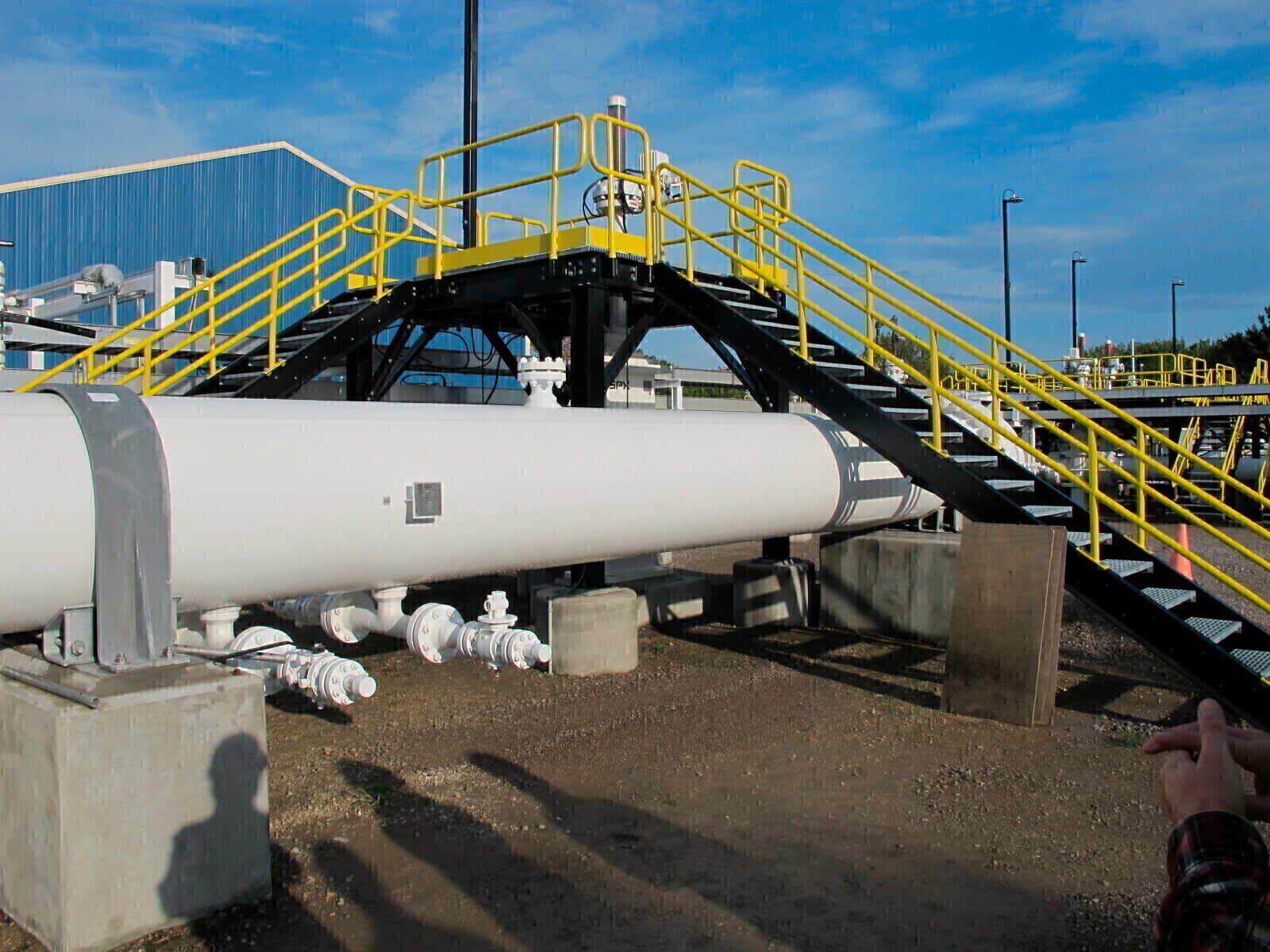Wisconsin agency issues first round of permits for Enbridge Line 5 reroute around reservation
The Wisconsin Department of Natural Resources has issued the first round of permits allowing Enbridge to reroute an aging pipeline around a tribal reservation

The Wisconsin Department of Natural Resources has issued the first round of permits allowing Enbridge to reroute an aging pipeline around a tribal reservation.
DNR officials announced Thursday they have issued the first construction permits for the Line 5 reroute around the Bad River Band of Lake Superior Chippewa's reservation. The energy company still needs discharge permits from the DNR as well as the U.S. Army Corps of Engineers.
The DNR issued the construction permits with more than 200 conditions attached. The company must complete the project by Nov. 14, 2027, hire DNR-approved environmental monitors and allow DNR employees to access the site during reasonable hours.
The company also must notify the agency within 24 hours of any permit violations or hazardous material spills affecting wetlands or waterways; can’t discharge any drilling mud into wetlands, waterways or sensitive areas; keep spill response equipment at workspace entry and exit points; and monitor for the introduction and spread in invasive plant species.
Enbridge officials issued a statement praising the approval, calling it a “major step” toward construction that will keep reliable energy flowing to Wisconsin and the Great Lakes region.
Bad River tribal officials warned in their own statement Thursday that the project calls for blasting, drilling and digging trenches that would devastate the area's wetlands and streams and endanger the tribe's wild rice beds. The tribe noted that investigations identified water quality violations and three aquifer breaches related to the Line 3 pipeline’s construction in northern Minnesota.
“I'm angry that the DNR has signed off on a half-baked plan that spells disaster for our homeland and our way of life,” Bad River Chairman Robert Blanchard said in the statement. “We will continue sounding the alarm to prevent yet another Enbridge pipeline from endangering our watershed.”
Line 5 transports up to 23 million gallons (about 87 million liters) of oil and natural gas daily from Superior, Wisconsin, through Michigan to Sarnia, Ontario. About 12 miles (19 kilometers) of the pipeline run across the Bad River reservation.
The tribe sued Enbridge in 2019 to force the company to remove the pipeline from the reservation, arguing the 71-year-old line is prone to a catastrophic spill and land easements allowing Enbridge to operate on the reservation expired in 2013.
Enbridge has proposed a 41-mile (66-kilometer) reroute around the reservation's southern border.
The company has only about two years to complete the project. U.S. District Judge William Conley last year ordered Enbridge to shut down the portion of pipeline crossing the reservation within three years and pay the tribe more than $5 million for trespassing. An Enbridge appeal is pending in a federal appellate court in Chicago.
Michigan’s Democratic attorney general, Dana Nessel, filed a lawsuit in 2019 seeking to shut down twin portions of Line 5 that run beneath the Straits of Mackinac, the narrow waterways that connect Lake Michigan and Lake Huron. Nessel argued that anchor strikes could rupture the line, resulting in a devastating spill. That lawsuit is still pending in a federal appellate court.
Michigan regulators in December approved the company’s $500 million plan to encase the portion of the pipeline beneath the straits in a tunnel to mitigate risk. The plan is awaiting approval from the U.S. Army Corps of Engineers.
Bookmark popover
Removed from bookmarks